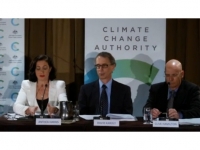Australian Climate Change Authority calls for PV subsidy cut

The Australian Climate Change Authority (CCA) has released a report advising the government to lower the small-scale renewable energy scheme (SRES) for solar PV from 100kW to 10kW. Concluding a six-month consultation on the future of Australia's renewable energy target (RET), the authority said this reduction would be the most effective way to constrain SRES-related costs in order to offset rising electricity prices and uncertainty for scheme participants. CCA said that this would in turn help streamline government support for solar and instil confidence in the Australian market, thereby increasing foreign and domestic investment. However, the report does propose other measures to constrain the costs of the SRES and make a transition to its proposed new model. These include a fixed gigawatt hour target, a discounting mechanism and the ability to lower the existing price cap in an emergency. Furthermore, CCA said the government should retain the existing RET of 41,000GWh by 2020, as currently legislated. It saide it was not convinced that a compelling case exists to adjust the target. At the press launch of the report, Professor David Karoly, a climate change expert from the University of Melbourne, said that all political parties support the RET of 20%. The CCA acknowledged the costs borne by electricity consumers already experiencing large increases in electricity prices, but said that carbon pricing and the RET were responsible for only a small percentage of that. CCA Chair Bernie Fraser said: “The judgement of the authority is that current arrangements in the renewable energy area are delivering worthwhile benefits. At the same time changes to those arrangements are recommended." At the press conference, Professor Clive Hamilton from Charles Sturt University said: “The authority has shown how cheap it [CCA’s new model] can be. The longer we leave it, the more expensive it will be. “Dealing with climate change was never going to be costless, but what we’re seeing with the changes in the electricity market is that the costs are substantially lower than most people thought.” The report demonstrates that generation eligible under the RET produced around 14,000GWh of electricity in 2011. The document is now with the federal government, which has six months to respond.

